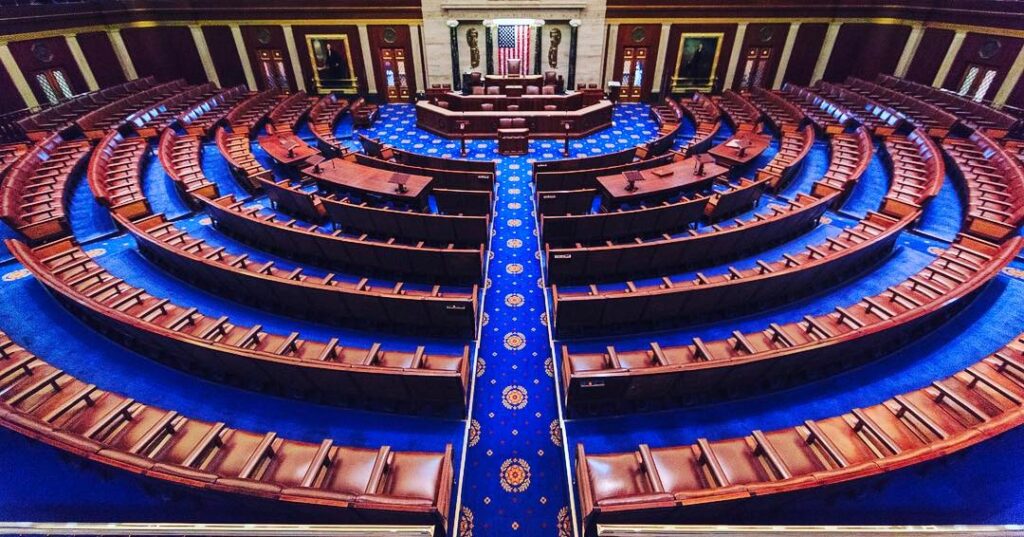On 13 May 2025, James Daniel Jordan, Chairman of the Judiciary Committee of the United States House of Representatives, together with four other members of the Committee, addressed a letter to Michael McGrath, European Commissioner for democracy, justice and the rule of law. The letter inquires how the European Union intends to respond to the actions of Donald Tusk’s government. As grounds for their interest in this matter, the congressmen pointed to the potential negative impact that the Polish government’s actions could have on standards of freedom of speech, including on a global scale (due to the use by large platforms of a single, regionally undifferentiated standard for assessing content in this area), which could then directly affect US citizens. A specific example of such action was the request that the Scientific and Academic Computer Network – National Research Institute was to submit to TikTok in November last year to remove a video critical of the idea of promoting electric cars. The reason given for the removal was that the video suggested that electric cars are not a viable solution from either an economic or an environmental point of view.
However, what is particularly important is that the request also pointed to a number of actions by the current government that constitute violations of the rule of law, which have already been described many times on our website, such as the inhumane treatment of Father Michał Olszewski’s during his arrest, the possible contribution to the death of Barbara Skrzypek (former secretary of Jarosław Kaczyński) in connection with the failure to guarantee her rights during a politically motivated interrogation, as reported in the media, and finally, the attempt to deprive Telewizja Republika (Poland’s biggest conservative news channel) of its licence to broadcast nationwide.
This use of the law as a weapon in political struggle, serving to persecute the opposition, was compared by the congressmen to the actions of the administration of the previous US President, Joseph Biden.
It would not have been possible to bring information about these abuses to the attention of the international community, and thus to US congressmen, without the publication of the English-language version of our report ‘A year of devastation of the rule of law in Poland’, as well as the reports of the Lawyers for Poland Association, which cooperates with us: ‘Report on Violations of the Law by the Polish Government (Prime Minister Donald Tusk) – Testimonies of Judges and Prosecutors’, ‘Rule of law in ruins. Poland under the “December 13” Coalition’ and ‘Cui prodest scelus, is fecit. Judges-Politicians at war against Poland’. These reports have been the subject of numerous meetings and analyses by think tanks and politicians from both the EU and the US (including congressmen and the new presidential administration after Donald Trump took office), as well as debates within the Organisation for Security and Cooperation in Europe and the European Parliament.
In view of the above actions of the Polish government, the congressmen express their concern that Donald Tusk may seek to use various controversial legal measures, foremost among them the EU Digital Services Act (commonly referred to by its acronym DSA) , whose recitals (in particular recital 84) emphasise the obligation of ‘very large online platforms’ and ‘very large search engines’ to counter the dissemination of ‘misleading or deceptive content, including disinformation’ – to silence their political opponents and censor statements critical of the government. This concern is not unfounded – to the draft law aimed at adapting the Polish legal system to the obligations arising from the DSA, the current government, after the public consultation process had already been completed, added a so-called legislative amendment introducing a completely new procedure for imposing an obligation to remove content from the Internet by administrative decision, without guaranteeing effective remedies.
The congressmen also pointed to the double standards applied by the European Commission in the use of the so-called rule of law mechanism provided for in Article 7 of the Treaty on European Union. While during the previous term of the Polish Sejm, EU bodies were very eager to use this power, even in relation to matters that do not fall within the competences conferred on the EU by the Treaties, they are currently not taking any action against violations of the rule of law committed by Donald Tusk’s government. In the opinion of the congressmen, this silence on the part of the Commission may embolden the Polish government to continue such actions, including the censorship of political opponents, which, as indicated above, may have global consequences and thus affect US citizens.
The true meaning and significance of this statement was pointed out by Dr Łukasz Bernaciński in his post on platform X:
The foundation of ‘transitional justice’ is the support and protective umbrella of the international community. Without this narrative protection, the government’s actions remain pure lawlessness, which must be accounted for and punished.
Indeed, the loss of the justification provided by ‘international standards’ will reveal the actions of the current government and its supporters, who declare that there is no need to strictly adhere to the ‘letter of the law’, for what they really are – ordinary lawlessness. The lack of interference from the international community should, however, make it possible to hold them fully accountable.
Image source: Wikipedia.

